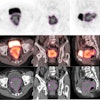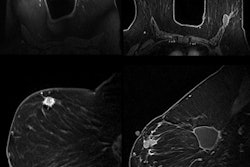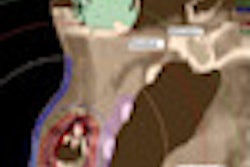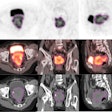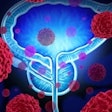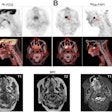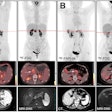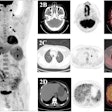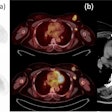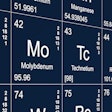Pioneering women who were among the first patients to receive accelerated partial-breast irradiation (APBI) for early-stage breast cancer can breathe easier with the results of a long-term outcomes study published online April 15 in Radiotherapy and Oncology.
Data comparing long-term outcomes of patients with early-stage breast cancer who received APBI versus those who received whole-breast irradiation (WBI) are scarce because clinical trials are still under way or were completed too recently to provide more than a few years of data.
The new findings are the latest update of an ongoing matched-pair analysis of nearly 400 women who received APBI or WBI treatments following breast conservation surgery at William Beaumont Hospital. The hospital's radiation oncology department was an early adopter of APBI treatment, and its researchers have followed all patients who received treatment over a 10-year period.
The 199 breast cancer patients being followed were enrolled in clinical trials and received interstitial brachytherapy treatment to the tumor bed between October 1992 and October 2001 at William Beaumont. Each APBI patient was matched with a patient from a group of 1,861 women who received conventional whole-breast radiation therapy between December 1992 and November 1996 at the hospital. The patients were matched according to age, tumor size, nodal status, estrogen-receptor status, and whether they also received adjuvant hormonal therapy.
In this update to reported 10-year data, outcomes for both groups were comparable with respect to local and regional recurrence, cause-specific survival, disease-free survival, and overall survival.
APBI versus WBI results
|
Lead author Dr. Chirag Shah, from the department of radiation oncology, and colleagues reported that young age was the only significant factor for local recurrence. This was the case for both groups.
The APBI group included 20.6% of patients categorized as unsuitable for treatment based on American Society for Radiation Oncology (ASTRO) guidelines that were published in August 2010. This "unsuitable" group had the lowest local recurrence rate, at 2.4%, followed by "suitable" patients, at 4.4%, and patients categorized as "cautionary," at 7.4%.
A total of 19 patients experienced local recurrence of breast cancer, 10 of whom were in the APBI group. Failures for both groups occurred as soon as 18 months following treatment and for up to 13.2 years for the APBI group and 15.3 years for the conventional radiation therapy group.
Patients with breast cancer recurrence who had salvage treatment also had similar outcomes five years following the salvage treatment. Salvage treatment included mastectomies or additional breast conservation surgery, the authors reported.



